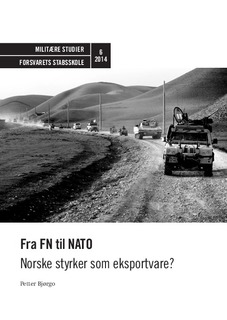| dc.description.abstract | Most studies on Norwegian troop contributions to multinational operations have focused on the Norwegian armed forces taking part in missions abroad. This study, covering the time span 1990-2013, limits itself to cases where the government has turned down a troop contribution request. The main question is, why has Norway refused such requests from NATO, the UN, or even the EU? Drawing its material from Norwegian newspapers, as well as a number of political documents, the study presents eight cases where Norway has been asked for troop contributions, among them Lebanon, Chad, Iraq, and South Afghanistan. Judging from the analysis, there are several causes behind the refusals, all of which can be partly or entirely explained by means of the following three factors: mandate, resources, and domestic politics. The main finding is that lack of resources is the most frequently used argument. However, this argument is primarily used as an explanation (or even excuse) when UN requests are rejected, in particular on the African continent. Moreover, the UN has received the highest number of refusals, regardless of cause. Refusals to NATO or US-led operations are mostly due to mandate considerations or discord within the government. In short, Norwegian troop contributions are much more likely to participate in Alliance operations than in UN missions. | nb_NO |
